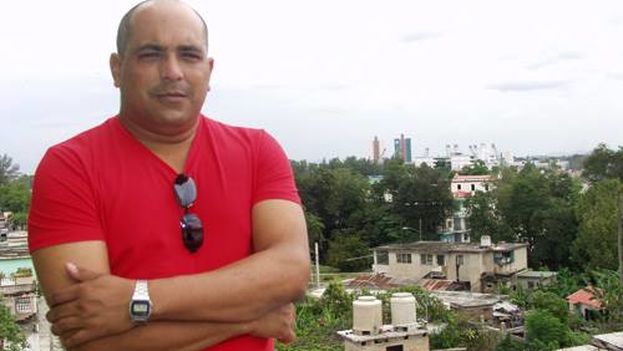
![]() 14ymedio, Generation Y, Yoani Sanchez, Havana, 31 August 2016 – In the nineties, this student was one of the most militant in his university classroom, until he managed to get a fellowship in Spain, and today he writes asking me, “Why do you put up with so much and not rebel?” From a rabid militant of the Young Communist Union (UJC) he went on to carve out a history as a clandestine fighter for the democracy he had to escape to because on this island “little could be done.”
14ymedio, Generation Y, Yoani Sanchez, Havana, 31 August 2016 – In the nineties, this student was one of the most militant in his university classroom, until he managed to get a fellowship in Spain, and today he writes asking me, “Why do you put up with so much and not rebel?” From a rabid militant of the Young Communist Union (UJC) he went on to carve out a history as a clandestine fighter for the democracy he had to escape to because on this island “little could be done.”
The story of this colleague, who overturned his ideology at breakneck speed, came to mind lately on reading the intense controversy over the work sanction against the Radio Holguin journalist Jose Ramirez Pantoja. The young reporter published on his digital diary a statement by Karina Marron, deputy director for the newspaper Granma, where she defined the current economic and social conditions as the basis for “a perfect storm.”
Along with the disciplinary measure, which consisted in permanent separation from his job at the station, Pantoja had to undergo a process of public disqualification that reached its climax in a text signed by Aixa Hevia, vice president of the Cuban Journalists Union (UPEC). The official accused him of wanting to “create a history that allows him to cross to the Miami media.” Perhaps a projection of what she herself would do if the opportunity presented itself.
It would not be the first time that a well-known face from Cuba’s official journalism ended up “crossing the pond” and declaring on the other side that it was because “at that time I believed, but not any more.” The greatest extremists I have met in my life have ended up this way: burying their red or olive-green attire, without intoning the self-criticism that would give some relief to the victims they caused with their outbursts.
Over time, if ever, the instruments of censorship such as Aixa Hevia undergo a process of selective amnesia and forget all the damage they did to those who demonstrated greater honesty and consistency. They leave behind a trail of colleagues they have betrayed and helped to depose, without even sending them a short note of apology or condolences.
It is not Pantoja, in this case, who is carving out a “history,” but the sectarians like the vice president of UPEC, who is capable of lashing out against someone she should defend. As a representative of the journalists’ union, she should protect her colleague, instead of helping to sink him. But she has preferred to act in harmony with the censors rather than in solidarity with a professional who simply defended freedom of the press, information transparency and the right of his readers to be informed about what journalists think.
This is not about speculating whether Pantoja will exercise his right to perform as a journalist in another country because he is prohibited from doing so in his own. It seems more likely that someday it will be Aixa Hevia who will shed her chameleon skin to change her color in turn, to the dictates of the next power for whom she wants to behave as a mere instrument.
